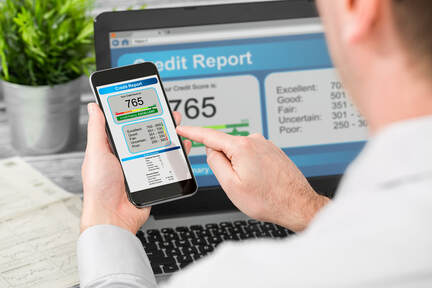 How your credit score is calculated and the impact it can have on your life is a mystery to many. However, credit scores and the ways in which they’re used are actually pretty straightforward. It’s smart to be aware of this information to ensure your credit score remains as high as possible, especially if you plan to make a large purchase in the near future. Below are basic tips and information to give you a better understanding of your credit score. What is a credit score?
A credit score is a number that reflects your credit risk level, with a higher number indicating lower risk. It is generated through statistical models using elements from your credit report. The three national credit reporting bureaus—Experian, Equifax and TransUnion—keep reports based on information they receive from companies that have extended credit to you. These reports include information such as your payment history, the length of your credit history, the types of credit you have and the amounts you owe. From that information, they derive your credit score, which can range from 300 to a perfect 850. The higher your score, the better interest rates you’ll receive. Consumers with a credit score above 700 generally receive lower interest rates, and those with a credit score of 760 or higher will receive the lowest interest rates. A score of 660 or below is considered “subprime” and may disqualify you from bank credit. If you’re thinking about buying a car or purchasing a home, your three-digit credit score will in large part determine your interest rate. How is a credit score calculated? Your credit score is calculated using this formula:
What are some ways a credit score is used? Banks, mortgage lenders, auto dealers, credit card companies, retail stores and most any other lender will use a credit score to quickly summarize a consumer's credit history, saving the need to manually review an applicant's credit report as well as providing a better, faster risk decision. Depending on the amount of credit needed, additional factors such as an applicant's income vs. the size of the loan are also used. However, your credit score is the leading indicator of creditworthiness. Your credit score can also play a role in situations you might not expect. These include utility companies assessing whether they will require a deposit and if so, how much; landlords determining how much will be required as a security deposit; cell phone companies potentially offering a flexible payment plan; and insurance companies reviewing whether to provide coverage, how much and at what cost. How can you improve your credit score?
This information is provided with the understanding that the association is not engaged in rendering specific legal, accounting or other professional services. If specific expert assistance is required, the services of a professional should be sought. Provided as a public service by the Pennsylvania Association of Community Bankers. Comments are closed.
|
AuthorWrite something about yourself. No need to be fancy, just an overview. Archives
December 2017
Categories
All
|
|
Pennsylvania Association of Community Bankers
800 N. 3rd Street, Suite 304 Harrisburg, PA 17102 Phone: (717) 231-7447 [email protected] | sitemap (C) All Rights Reserved Our Privacy Policy Our Copyright Policy |
"To empower community banks to make positive impact within the communities they serve."
|
